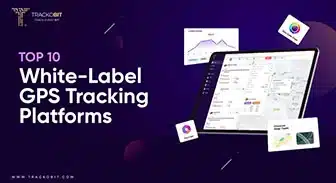-
TrackoBit
Manage commercial vehicles with the new-age Fleet Management Software
TrackoBit -
TrackoField
Streamline your scattered workforce with Field Force Management Software
TrackoField -
Features Resources
-
Blog
Carefully curated articles to update you on industrial trends. -
White Paper
Insightful papers and analysis on essential subject matters. -
Glossary
Explore an alphabetical list of relevant industry terms. -
What’s New
Get TrackoBit & TrackoField monthly updates here. -
Case Study
Explore the cases we solved with our diverse solutions. -
Comparisons
Compare platforms, features, and pricing to find your best fit.
-
About Us
Get to know TrackoBit: our team, ethos, values, and vision. -
Careers
Join the most dynamic cult of coders, creatives and changemakers. -
Tech Support
Learn about our technical support team and services in detail. -
Events
Check out the exhibitions where we left our marks and conquered. -
Contact Us
Connect with us and let us know how we can be of service.
Rising Cargo Thefts in Nigeria: How to Secure Your Fleet Against Route-specific Threats
- Author:Anvesha Pandey
- Read Time:6 min
- Published:
- Last Update: May 26, 2025
Table of Contents
Toggle
Running a fleet in Nigeria? If yes, read this blog to learn more. It explains how to protect your vehicles and cargo from theft with advanced tracking.
Table of Contents
Toggle
Cargo theft is rapidly rising in Nigeria. Especially along highways like Lagos-Ibadan and Abuja-Kaduna. These incidents lead to financial losses. Additionally, they also disrupt supply chains and damage business credibility.
Criminals are getting more organized and targeting specific routes. As a result, the threat is growing. In such instances, fleet operators must increase their security measures.
This blog explores the surge in cargo thefts. It also shows how asset tracking systems help logistics managers secure high-value shipments. Additionally, tamper detection helps protect their fleet.
The Most Common Challenges Nigerian Fleets Face!
1. Route Planning and Scheduling Disruptions
High-risk routes have become known for theft incidents. These areas require extra security measures. These hotspots force fleet operators to choose between delivery efficiency and safety. Avoiding such routes often means longer travel times and increased fuel consumption.
It also causes scheduling conflicts, which strain operational planning and reduce overall productivity.
2. Gaps in Security and Risk Management
Criminals have stepped up their game using fake police checkpoints, GPS jammers etc’.
Such new techniques can readily circumvent outdated security protocols.
Without intelligent monitoring systems or anti-theft mechanisms in place, fleets become easy targets. This makes reactive risk management no longer sufficient. In fact, fleets need proactive threat detection and prevention tools to stay ahead.
3. Limited Real-Time Visibility of Assets
In theft-prone areas, GPS jammers and poor signal coverage make real-time tracking unreliable. Loss of visibility makes it hard to confirm vehicle locations. It also delays the detection of suspicious detours.
Without instant alerts for route deviations, dispatch teams are left blind. In fact, they are unable to take immediate corrective action. This leads to delays, loss of control, and higher vulnerability.
4. Driver Safety and Accountability Concerns
Drivers are often the most vulnerable part of the logistics chain. In the absence of panic buttons or SOS alerts, they have no reliable way to report emergencies.
Many are not adequately trained to respond to threats, making them easy targets. For fleet managers, this results in increased risk to life. It also leads to higher driver attrition and weaker control over on-ground operations.
Proactive Fleet Security Measures for Nigerian Fleets
Tackling cargo theft in Nigeria requires more than reactive damage control. Fleet operators must integrate proactive security strategies powered by technology, training, and collaboration. Here’s how you can turn your fleet into a well-secured operation:
a. Route Risk Mapping and Planning
A critical step in cargo theft prevention is mapping out high-risk routes. Especially using historical data. By identifying red zones, you can avoid sending vehicles through vulnerable areas.
This helps improve fleet safety and reduce risks. This is especially important during late-night hours or periods of low visibility.
Intelligent route planning software can help you plan the safest route. These paths prioritize both safety and efficiency. This helps minimize delays while maximizing asset protection.
b. Real-Time GPS Tracking and Geofencing
Telematics-enabled GPS tracking ensures that every vehicle movement is visible. That too, all of these are monitored in real time.
By setting up geofences around known danger zones, you can receive instant alerts.
These alerts happen in case of route deviations or unscheduled stops.
This visibility allows for quicker response times. Further, it prevents small disruptions from escalating into major theft incidents. It also gives the operations team more control over assets during transit.
c. Driver Monitoring and Training
The human element of fleet safety is just as important. Conducting thorough background checks and offering targeted training helps ensure drivers are prepared.
Training modules should cover route-specific threats, emergency response tactics, and best practices. This helps in communicating better during a crisis. Equipping vehicles with panic buttons and two-way communication lets drivers alert you instantly.
This enables fast emergency response. This is especially important when they face a threat. Further helping prevent theft and ensuring safety.
d. Tamper-Proof Hardware and Anti-Theft Tech (The Hardware Segment)
Today’s fleet security goes beyond basic e-locks. Tamper-proof solutions like dashcams, fuel level sensors, engine immobilizers, etc., are essential. These tools help capture suspicious activity, detect cargo breaches, and trigger immediate alerts.
Smart locks and encrypted access systems further secure high-value cargo, preventing unauthorized handling. With layered security hardware, theft attempts can be deterred. If not deterred, at least it’s recorded for investigation.
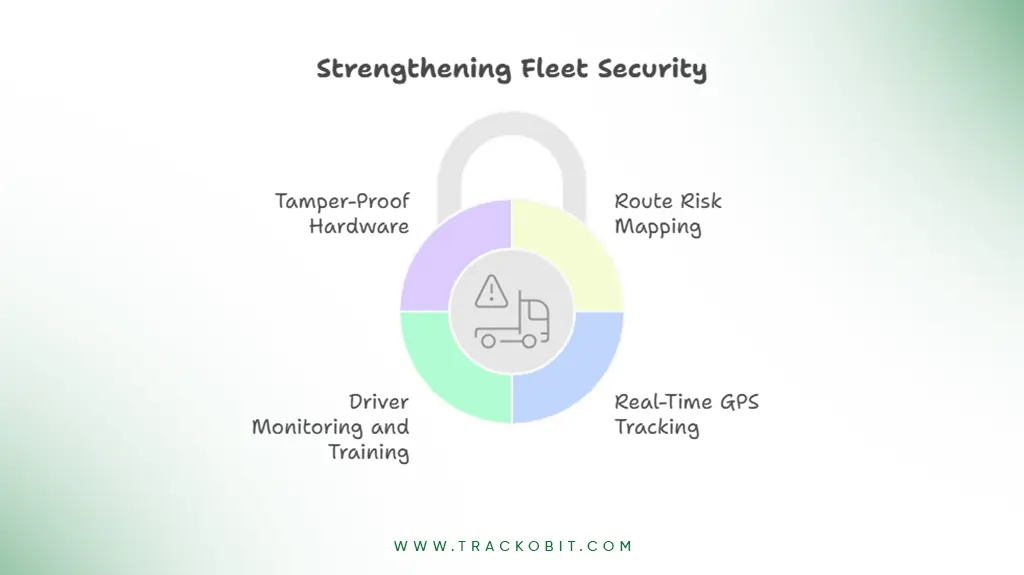
Proactive Fleet Security Measures for Nigerian Fleets
How Fleet Management System Can Be the Solution?
Cargo theft is a major issue that should not be neglected.. Modern fleet management systems like TrackoBit provide tools for route-specific planning. They also provide instant safety and theft alerts, along with 360° asset monitoring.
These systems combine real-time GPS tracking with geofencing and predictive analytics. Furthermore, delivering proactive solutions to reduce risks and improve security.
By leveraging predictive analytics, you will be able to anticipate potential threats. You can take such decisions based on historical data and current patterns. Further helping you avoid dangerous zones and make smarter, data-driven decisions.
Therefore, with instant alerts and automated responses, fleet operators stay one step ahead. Further ensuring that theft attempts are thwarted before they escalate.
TrackoBit’s 360° monitoring provides complete fleet visibility, ensuring security and efficiency.
- Real-time monitoring for immediate insights and decision-making.
- Enhanced fleet efficiency through data-driven operations.
- Quick emergency response with instant tracking and alerts.
- Advanced technology to protect valuable assets and ensure safety.
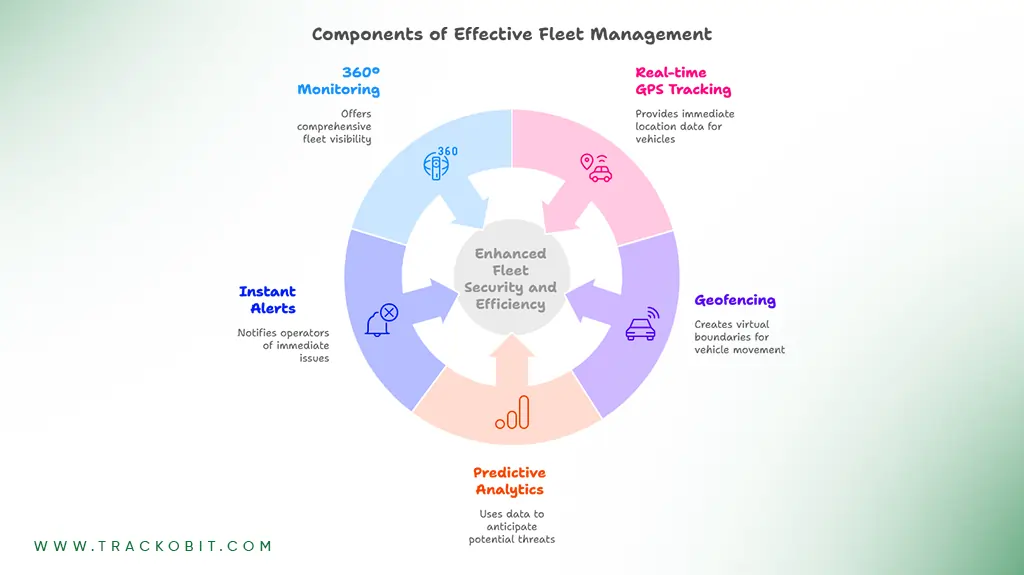
The Major Components
Additional Info: Benefits of Route-Specific Risk Mitigation
- Reduced Cargo Losses & Insurance Claims — Avoid high-risk routes, reducing theft and damage. This leads to fewer insurance claims and lower rates.
- Safer Drivers & Improved Morale—Proactive security and training enhance driver safety. This boosts confidence and reduces stress, leading to higher morale and retention.
- Higher Delivery Reliability & Customer Satisfaction– Timely, secure deliveries enhance customer trust, improving satisfaction and long-term business relationships.
- Improved ROI & Operational Efficiency – Fewer disruptions and optimized routing reduce costs, increase fleet utilization, and maximize ROI.
Fleet Management and Legal Implications for Cargo Theft in Nigeria
-
Compliance with Theft Laws
Fleet managers must guarantee that all operations adhere to Nigeria’s Criminal Code. Failure to do so may result in legal liabilities for the company and its drivers.
-
Enhanced Security Protocols
The Nigerian Police Force (NPF) implements laws pertaining to theft prevention. Fleet management must work with law enforcement to avoid cargo theft. This should apply especially to high-risk routes. To ensure that suitable safety precautions are in place.
-
Prevention of Armed Robbery
Cargo thefts involving armed robbers are treated as armed robbery under Nigerian law. Fleet managers should implement armed robbery prevention measures, such as using tracking systems. This helps comply with the compliance, like the Robbery and Firearms Act.
-
Regulation of Transport Routes
Local laws set clear rules for fleet operations. They require fleet managers to secure goods during transport. These laws apply within specific regions. This means choosing safe routes and adhering to state-specific guidelines. Doing so helps avoid penalties for unsafe transport practices.
-
Safe Cargo Handling and Storage
Laws relating to cargo security require operators to ensure proper handling of goods. They must also ensure secure storage, especially when transporting high-value cargo.
Conclusion
Route-specific risk mitigation plays a critical role in reducing losses. It also ensures safer operations and enhances customer satisfaction.
By using proactive measures like smart routing & real-time tracking, you can lower risks.
These steps also help improve operational efficiency.
The right strategies offered by fleet management systems not only protect valuable assets. They also optimize their bottom line.
Don’t wait for a threat to disrupt your activities. Invest in proactive fleet security using TrackoBit’s smart fleet management solution.
Receive real-time tracking, route risk analysis, and forecasting information. These tools safeguard your cargo, drivers, and business.
Get in touch today!
Anvesha is a communication specialist at TrackoBit. With a strong background in media and communications, she adds much-needed balance and brevity to TrackoBit’s... Read More
Related Blogs
-
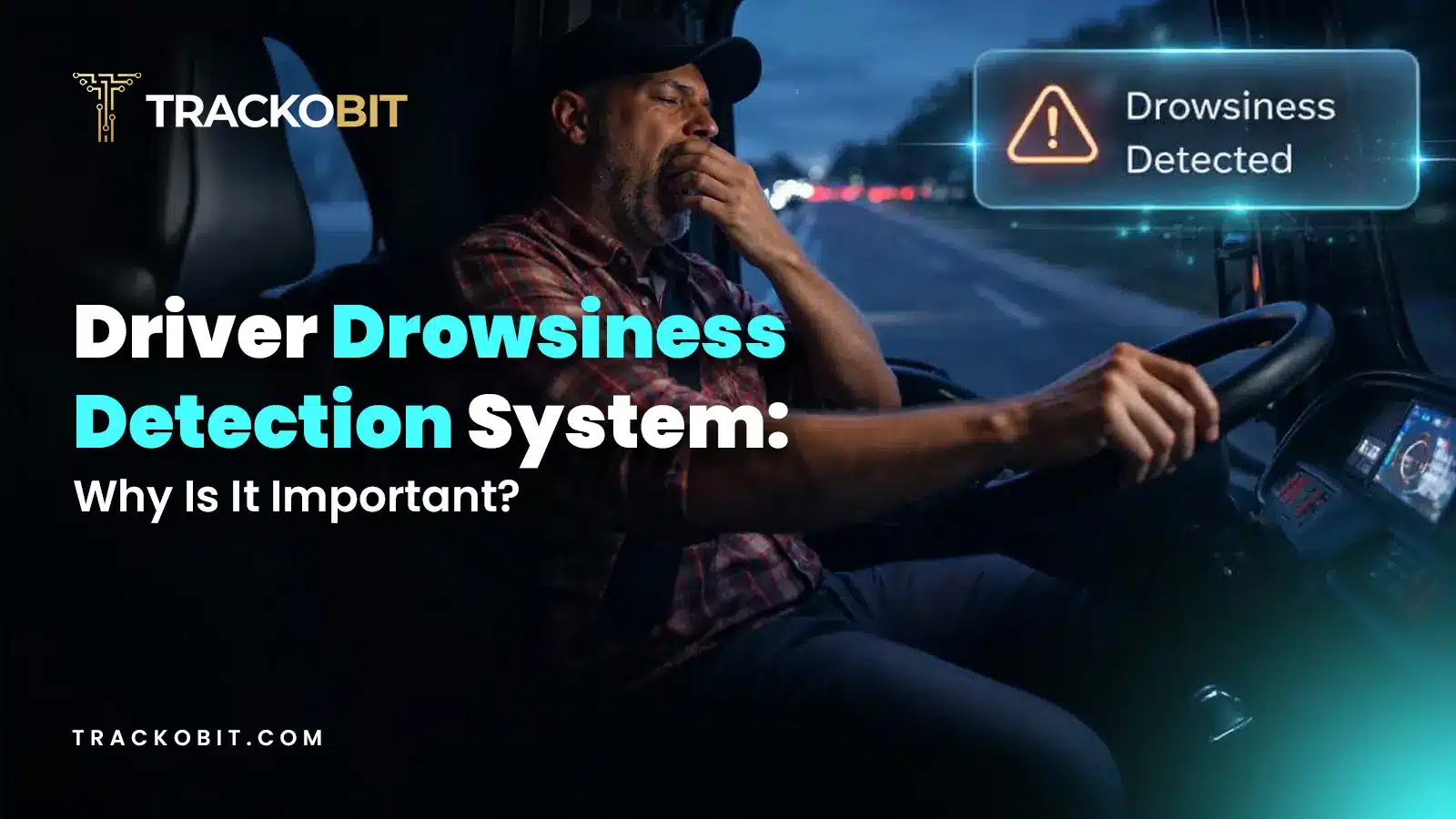
Why is Driver Drowsiness Detection System Important for Fleet Management?
Shemanti Ghosh February 4, 2026A driver drowsiness detection system is critical for fleet management. It helps prevent fatigue-related accidents and reduces operational risks through…
-
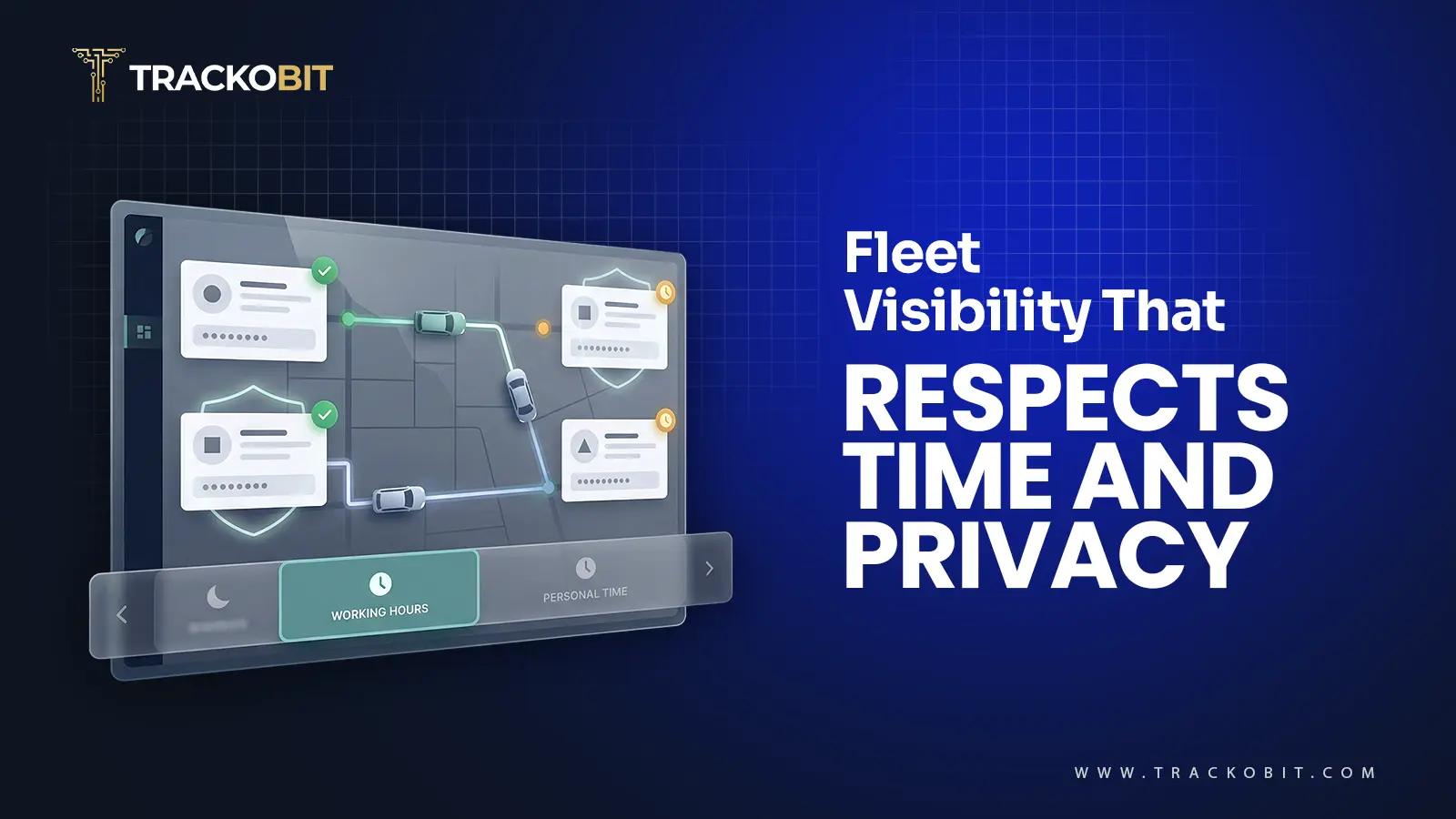
When Tracking Needs a Clock: Rethinking Fleet Visibility
Tithi Agarwal December 24, 2025Read on to understand why fleet tracking works better when it follows working hours. Because visibility should support operations, not…
-

What Makes TrackoBit’s Video Telematics Software Truly Next-Gen?
Shemanti Ghosh December 17, 2025TrackoBit’s video telematics software blends smart video intelligence with full server control. The result? Superior fleet reliability and safety.
-
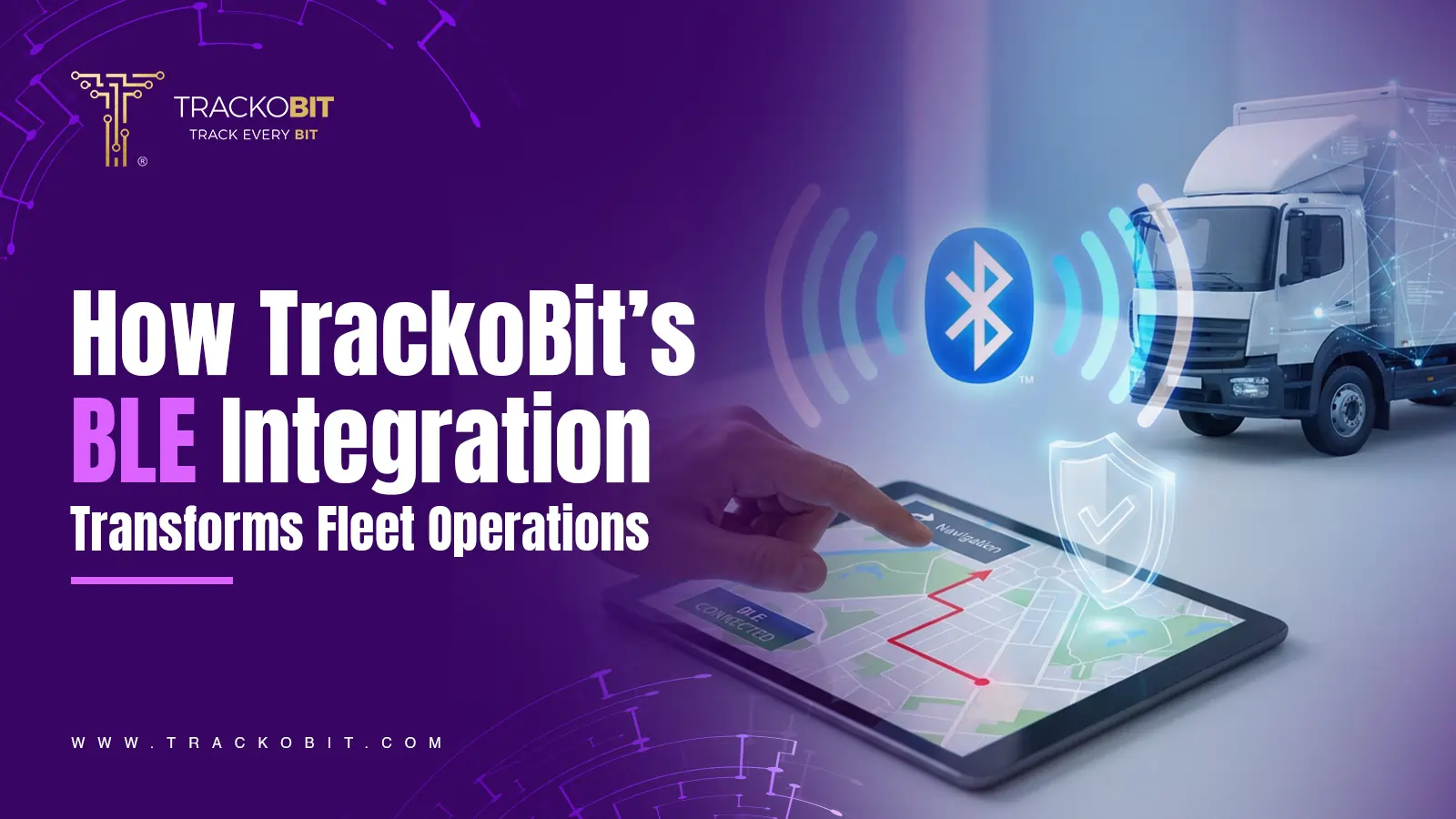
Plug, Pair, Perform TrackoBit Introduces BLE Sensor Integration
Tithi Agarwal November 26, 2025TrackoBit’s BLE Sensor Integration enables wireless, real-time monitoring with faster installs and accurate insights. It improves fleet efficiency, visibility, and…

Subscribe for weekly tips to optimize your fleet’s potential!
Your inbox awaits a welcome email. Stay tuned for the latest blog updates & expert insights.
"While you're here, dive into some more reads or grab quick bites from our social platforms!"Stay Updated on tech, telematics and mobility. Don't miss out on the latest in the industry.
We use cookies to enhance and personalize your browsing experience. By continuing to use our website, you agree to our Privacy Policy.



































